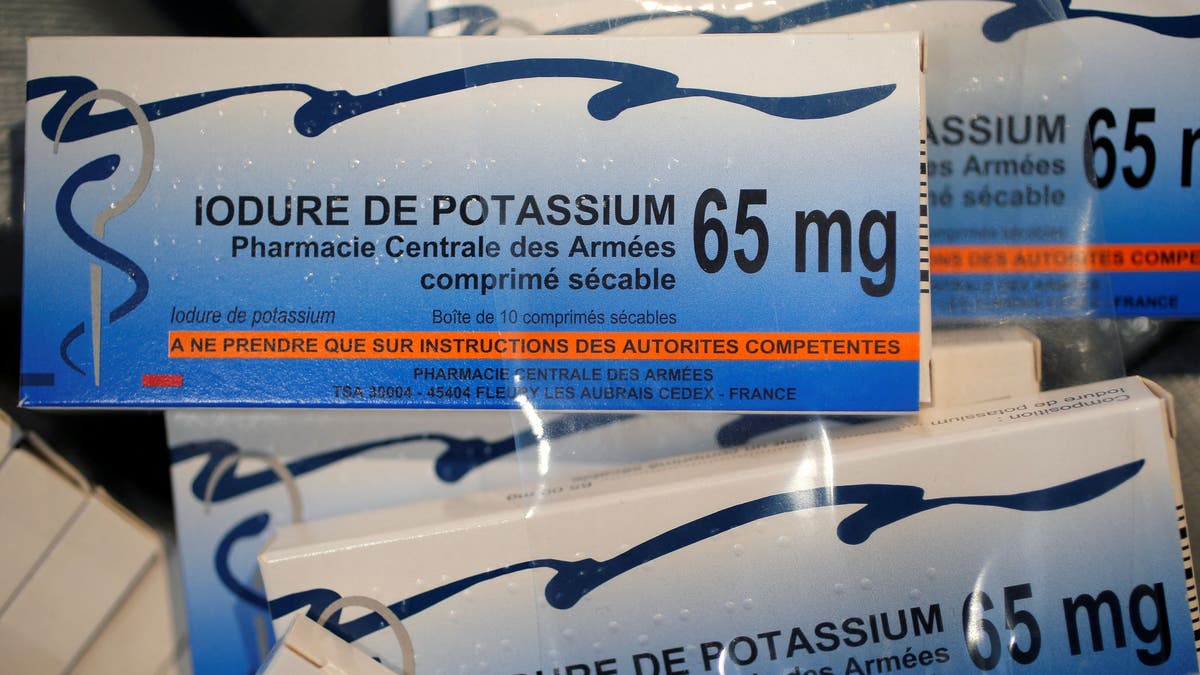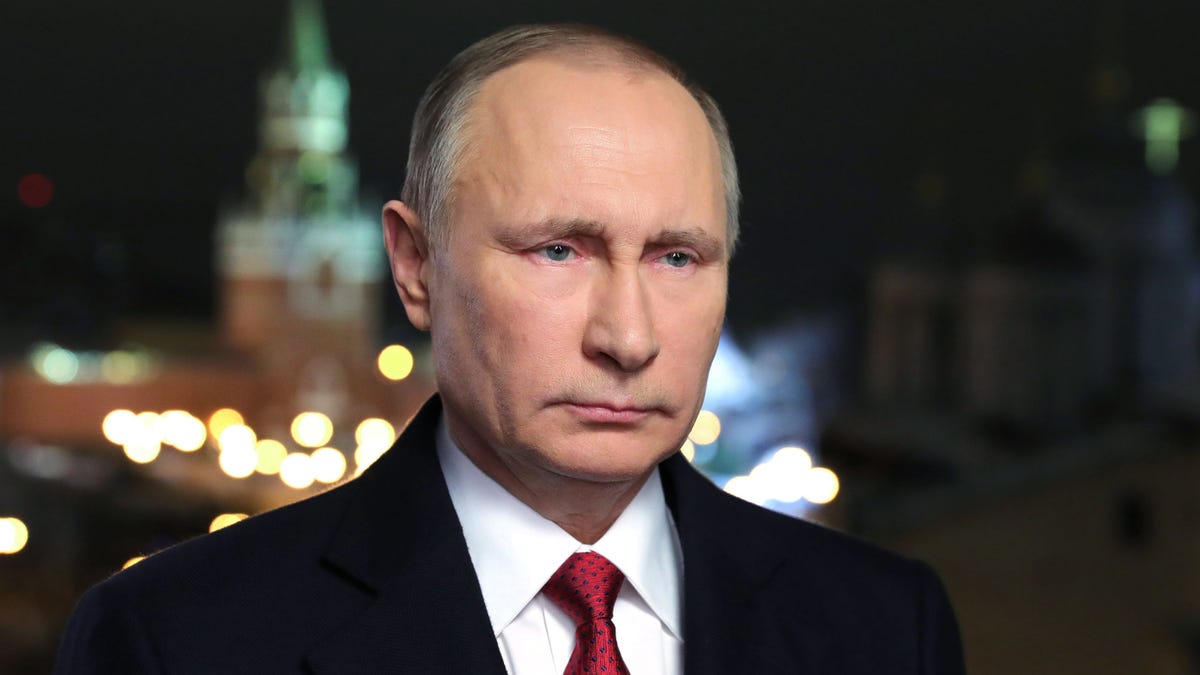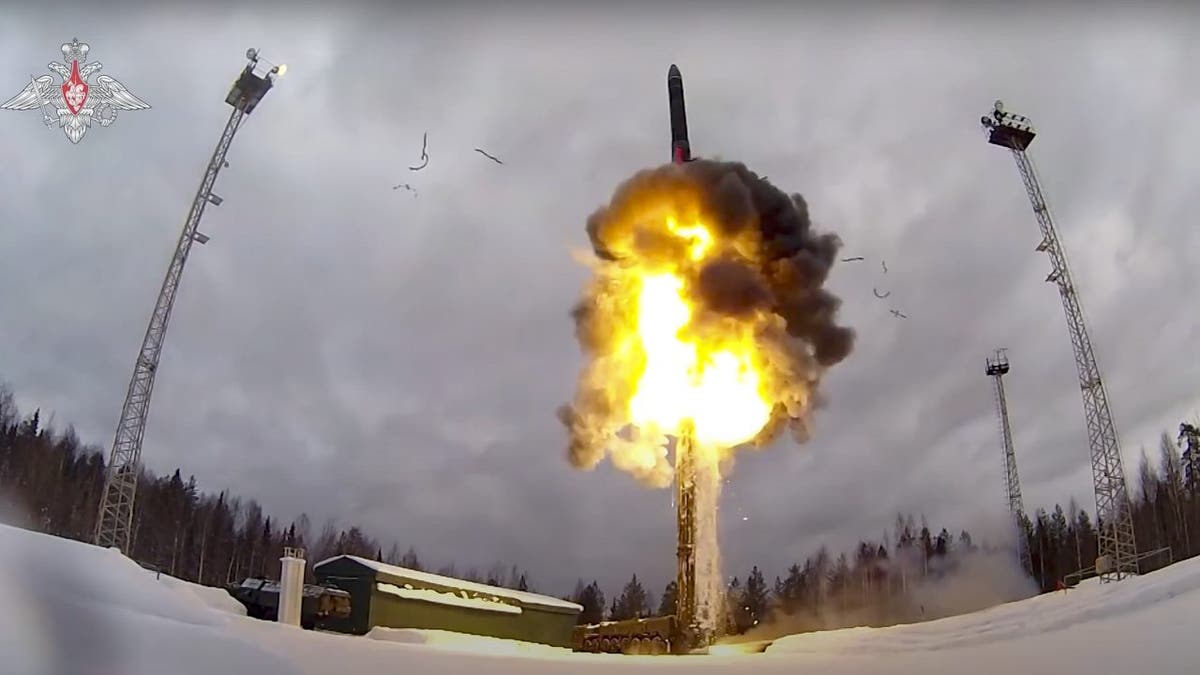Fox News Flash top headlines for March 3
Fox News Flash top headlines are here. Check out what's clicking on Foxnews.com.
Consumers in Central Europe are clearing out pharmacies of iodine pills to protect against radiation after Russian President Vladimir Putin invaded Ukraine and made veiled nuclear threats.
At the outset of the Feb. 24 attack attack on Ukraine, Putin euphemistically warned in a televised address that he'd use nuclear weapons if other countries intervened, rekindling Cold War fears of atomic destruction.

Iodine pills are seen in a classroom in Fessenheim during a nuclear accident drill near France's oldest nuclear power station, June 12, 2018. (Reuters/Vincent Kessler/File Photo)
A few days later in a dramatic escalation, Putin announced Feb. 27 that he was putting Russia's nuclear forces on high alert in response to the West imposing sweeping sanctions on his country.
"In the past six days Bulgarian pharmacies have sold as much [iodine] as they sell for a year," said Nikolay Kostov, chair of the Pharmacies Union. "Some pharmacies are already out of stock. We have ordered new quantities, but I am afraid they will not last very long."
UKRAINE BATTLES RUSSIAN FORCES: LIVE UPDATES
The World Health Organization recommends that children, pregnant woman and people under 40 take iodine, also known as potassium iodide, to protect the thyroid from exposure to radiation after a nuclear accident. By taking potassium iodide, it blocks the thyroid gland from absorbing radioactive iodide, which can cause cancer.

Russian President Vladimir Putin (Ap)
"It's a bit mad," said Miroslav Stenkova, a representative of Dr. Max pharmacies in the Czech Republic, where some stores had run out of iodine.
In Poland, the number of pharmacies stocking iodine more than doubled, according to a Polish website that connects people to pharmacies that carry the drugs they're seeking.
Google Trends indicates that searches for the terms "radiation exposure" and "radiation protection" increased more than 600% worldwide over the last week.

This photo taken from video provided by the Russian Defense Ministry Press Service on Saturday, Feb. 19, 2022, shows a Yars intercontinental ballistic missile being launched from an air field during military drills. (Russian Defense Ministry Press Service via AP)
After the 2011 Fukushima nuclear power plant disaster, Japanese officials encouraged people living nearby to take iodine. But stockpiling the pills may do people little good in the current climate.
The head of the Czech State Office for Nuclear Safety, Dana Drabova, cautioned on Twitter that iodine would not help in the case of a nuclear war where people would potentially be exposed to extraordinarily high levels of radiation.
"You ask a lot about iodine tablets," she wrote "As radiation protection when (God forbid) nuclear weapons are used, they are basically useless."
UKRAINE HEROISM SHOULD INSPIRE US, ALLIES TO TAKE ACTION AGAINST PUTIN
Demand for iodine also surged in Croatia, and doctors there warned people that the mineral poses health risks, Barron's reported.
"The (iodine tablets) can cause serious side effects," read a statement released by the Croatian Medical Chamber. The pills can adversely affect thyroid gland function and cause allergic reactions, according to the financial news magazine.
Many people were given iodine after the 1986 Chernobyl nuclear plant disaster that sent a radioactive plume across Europe.
The Russian military swept through the contaminated site on the first day of the invasion and captured the decommissioned nuclear plant, disrupting the ground and increasing radiation levels in the area, according to the U.N.'s International Atomic Energy Agency.
CLICK HERE TO GET THE FOX NEWS APP
But the watchdog group said the spike in radiation wasn't enough to a pose a risk to the public.
Reuters contributed to this report.


